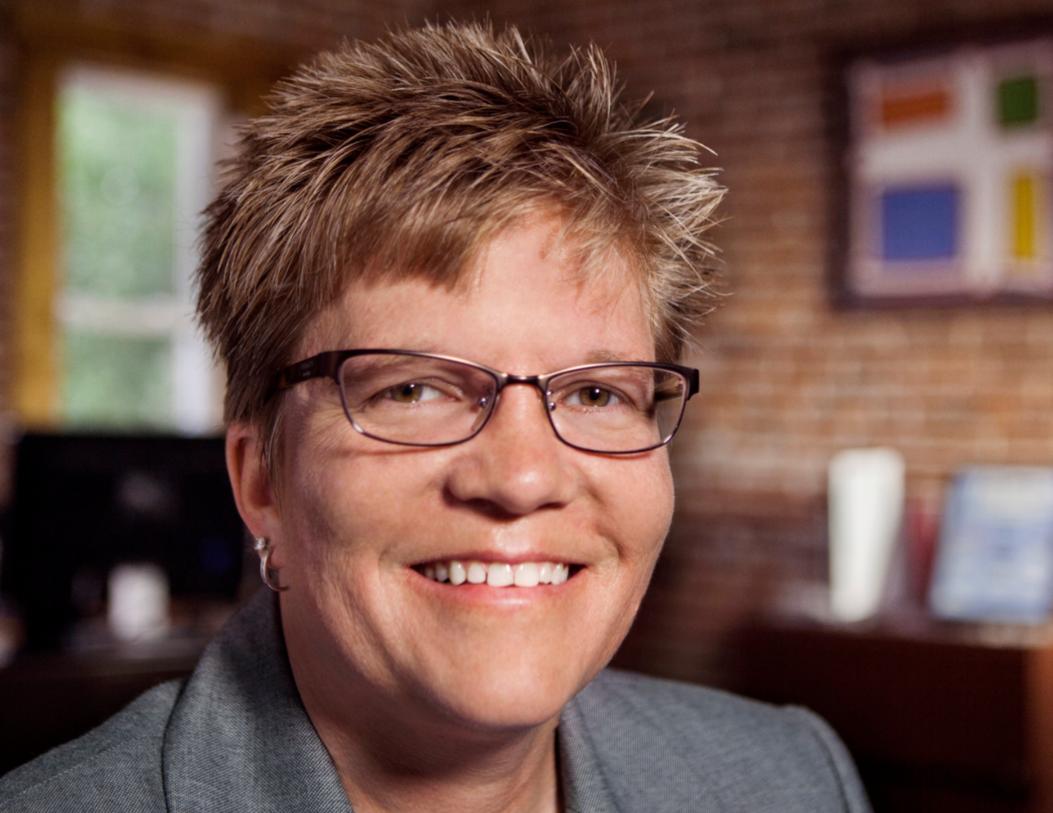The Longest Day: An LGBT Older Adult and Caregiver Perspective for Living with Alzheimer ’s Disease
June 2016 | Sherrill Wayland, MSW - SAGE's Manager of National Projects
Annually the Alzheimer’s Association hosts Longest Day events on the summer solstice to raise awareness and understanding of the challenging journey faced by people living with Alzheimer’s disease and their caregivers. The Alzheimer’s Association, St. Louis Chapter, marked this Longest Day with a sunrise to sunset ride on the MetroLink train, interviewing people living with the disease, their caregivers, advocates and other professionals to raise awareness and understanding.
I woke up at 4 a.m. to make my way to the train station for a 5:30 a.m. Longest Day Ride and Interview to discuss supporting LGBT older adults living with Alzheimer’s disease and their caregivers. As I walked through my still darkened house, I was met with silence as my wife and our dogs continued to sleep in the early morning hours. This quiet, darkness made me reflect on what can often be a lonely journey for LGBT older adults living with Alzheimer’s disease and their caregivers. Who is there to hear their stories and support their journey?
The reflections from my early morning stayed with me during the hour long ride as we discussed how to best support LGBT older adults living with this disease. Following is a recap of the topics discussed and some steps that aging network providers can take to improve the supports for LGBT older adults living with Alzheimer’s disease and their caregivers:
The Importance of Advance Planning – We often discuss the need for financial and legal planning. Planning becomes even more critical when someone receives a diagnosis of Alzheimer’s disease that will most likely progress to a point where the person is reliant on others to make decisions and provide care. Regardless of a person’s marital status, documents such as durable powers of attorney for finances and health, living wills, and wills assist the aging network in knowing what their wishes are and who should be the person making decisions on their behalf. As advocates and aging network providers, we can help ensure that the planning documents are in place early in the support process.
Telling Our Life Stories – As Alzheimer’s disease progresses, it is often the long term memories that stay intact and shared by the person living with the disease. Creating a welcoming space for LGBT older adults to share their life experiences, loves, losses, fears, and significant relationships, including families of choice (close friends not related by blood or marriage), partner or spouse is critical in providing the best possible care and support. All too often, LGBT older adults do not seek supportive care from health and social services due to fear of and experiences with stigma and discrimination. By working to create welcoming spaces that honor a person’s life history, we can help people to share what is most important to them and may become an integral part of their future support and journey with this disease.
This life history can also be important during times of disaster and trauma, such as the recent mass shooting and deaths of 49 LGBT and allied community members in Orlando, FL. LGBT older adults have experienced a lifetime of stigma, discrimination, and many may have experienced violence such as that experienced during the Stonewall Riots and other events in their lives. Knowing their life story as an LGBT person will help aging network provide the support and understanding during a time of grief, crisis, or trauma.
It is also important to recognize that LGBT older adults and caregivers may first need to develop trust with your organization. LGBT older adults and caregivers may then feel comfortable and safe to share their stories. If at first a person doesn’t feel comfortable sharing, give them space, time and reassurance that your organization is a welcoming space.
Respecting Relationships – LGBT older adults often express feeling that their significant relationships and families of choice are not recognized or respected in the same way as a non-LGBT person’s significant other, family or spouse. Giving the same recognition and honor to LGBT older adult’s relationships and caregivers is important to help ensure that the support systems are in place to best meet the needs of an LGBT person living with Alzheimer’s disease and their caregivers.
For organizations offering caregiving and grief support, it is essential that facilitators and volunteers can assist in creating the welcoming space where all relationships are respected and honored within the group setting.
Offering LGBT Cultural Competency Training – The Alzheimer’s Association has been a strong partner with SAGE over the years. Several Alzheimer's Association Chapters have participated in SAGE's LGBT Cultural Competency training. They are among some of the first SAGECare Credentialed Organizations. Providing LGBT Older Adult Cultural Competency training is an essential step to supporting staff and volunteers in working with LGBT older adults and their caregivers. It also sends a large signal to the LGBT community that your organization is welcoming to LGBT older adults and caregivers.
As my interview ended and I walked from the platform back to my car, it struck me, “While I can get off this Longest Day Ride, the ride for LGBT older adults living with Alzheimer’s disease and their caregivers, is one that repeats itself day after day.” Through continued education and awareness, we can create an aging network that values and supports the journey of LGBT older adults living with Alzheimer’s disease and their caregivers. Take time today, to visit the National Resource Center on LGBT Aging and the vast array of resources available on Alzheimer's/Dementia, caregiving, legal and financial planning, and best practices for serving LGBT older adults.

